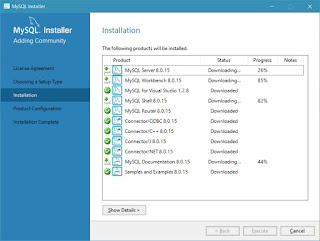I was reading a great article from Hacker Noon (link at the bottom of the page) and there was a paragraph about a variety of acronyms and phrases related to software engineering. For the sake of remembering them, I'm going to use Google to track down their respective meanings and copy and paste them below.
According to Wikipedia, YAGNI, or, you aren't gonna need it is a principle of extreme programming (XP) that states a programmer should not add functionality until deemed necessary. XP co-founder Ron Jeffries has written: "Always implement things when you actually need them, never when you just foresee that you need them." Other forms of the phrase include "You aren't going to need it" and "You ain't gonna need it".
Again, from Wikipedia, the single responsibility principle is a computer programming principle that states that every module or class should have responsibility over a single part of the functionality provided by the software, and that responsibility should be entirely encapsulated by the class.
DRY simply stands for Don't Repeat Yourself. Whereas WET is short for We Enjoy Typing. Both of which suggest that well thought out code should be succinct and avoid unnecessary repetition.
The Single Level of Abstraction (SLA) or the Single Level of Abstraction Principle (SLAP) states that "each method should be written in terms of a single level of abstraction."
According to Wikipedia, YAGNI, or, you aren't gonna need it is a principle of extreme programming (XP) that states a programmer should not add functionality until deemed necessary. XP co-founder Ron Jeffries has written: "Always implement things when you actually need them, never when you just foresee that you need them." Other forms of the phrase include "You aren't going to need it" and "You ain't gonna need it".
Again, from Wikipedia, the single responsibility principle is a computer programming principle that states that every module or class should have responsibility over a single part of the functionality provided by the software, and that responsibility should be entirely encapsulated by the class.
DRY simply stands for Don't Repeat Yourself. Whereas WET is short for We Enjoy Typing. Both of which suggest that well thought out code should be succinct and avoid unnecessary repetition.
The Single Level of Abstraction (SLA) or the Single Level of Abstraction Principle (SLAP) states that "each method should be written in terms of a single level of abstraction."











